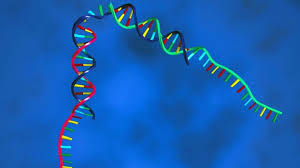
Breaking News
 HERE'S WHAT NO CASH ACTUALLY MEANS (Dave Ramsey re-post)
HERE'S WHAT NO CASH ACTUALLY MEANS (Dave Ramsey re-post)
 The Silver Shift: Why Stackers Are DUMPING 90% Silver & Buying SilverBitz!
The Silver Shift: Why Stackers Are DUMPING 90% Silver & Buying SilverBitz!
 Eye-bouncing - #SolutionsWatch
Eye-bouncing - #SolutionsWatch
 'Targeted, Antisemitism': 16 Dead, 38 Injured After Father & Son Terrorists Attack...
'Targeted, Antisemitism': 16 Dead, 38 Injured After Father & Son Terrorists Attack...
Top Tech News
 This tiny dev board is packed with features for ambitious makers
This tiny dev board is packed with features for ambitious makers
 Scientists Discover Gel to Regrow Tooth Enamel
Scientists Discover Gel to Regrow Tooth Enamel
 Vitamin C and Dandelion Root Killing Cancer Cells -- as Former CDC Director Calls for COVID-19...
Vitamin C and Dandelion Root Killing Cancer Cells -- as Former CDC Director Calls for COVID-19...
 Galactic Brain: US firm plans space-based data centers, power grid to challenge China
Galactic Brain: US firm plans space-based data centers, power grid to challenge China
 A microbial cleanup for glyphosate just earned a patent. Here's why that matters
A microbial cleanup for glyphosate just earned a patent. Here's why that matters
 Japan Breaks Internet Speed Record with 5 Million Times Faster Data Transfer
Japan Breaks Internet Speed Record with 5 Million Times Faster Data Transfer
 Advanced Propulsion Resources Part 1 of 2
Advanced Propulsion Resources Part 1 of 2
 PulsarFusion a forward-thinking UK aerospace company, is pushing the boundaries of space travel...
PulsarFusion a forward-thinking UK aerospace company, is pushing the boundaries of space travel...
 Dinky little laser box throws big-screen entertainment from inches away
Dinky little laser box throws big-screen entertainment from inches away
 'World's first' sodium-ion flashlight shines bright even at -40 ºF
'World's first' sodium-ion flashlight shines bright even at -40 ºF
Microsoft: Synthetic DNA To Be Used For Data Storage

Microsoft has purchased ten million strands of synthetic DNA to advance cutting edge digital data storage technology. With the amount of digital data doubling nearly every two years, the tech industry is on a quest for a long-term solution to keep track.
The multinational tech company bought the DNA from Twist Bioscience, an announcement confirmed Thursday.
"[The] vast majority of digital data is stored on media that has a finite shelf life and periodically needs to be re-encoded. DNA is a promising storage media, as it has a known shelf life of several thousand years, offers a permanent storage and can be read for continuously decreasing costs," said Emily Leproust, CEO of Twist Bioscience, in a statement.
As the digital universe is expected to hit 44 trillion gigabytes by 2020, Twist Bioscience argues that using DNA for archival purposes solves the twin problems of limited lifespan and low data density when data is normally stored on a hard drive.
A single gram of DNA can store almost one trillion gigabytes (almost a zettabyte) of digital data. The idea of storing data in DNA was first put forward in 2012 by Harvard geneticist George Church, who encoded an entire book in DNA.
Twist Bioscience built its own machines to mass produce the synthetic DNA. Previously, they manufactured novel bits of DNA to place into microbes to perform useful chemical processes, such as producing desirable nutrients. A custom DNA sequence costs about 10 cents per base, but Twist Bioscience hopes to get that cost down to two cents.
Before the purchase, Microsoft and Twist Bioscience conducted a test phase to encode and recover 100 percent of digital data from silicon-based synthetic DNA. The data is translated into genetic code of base pairs of As, Cs, Gs and Ts that represent the chemical blocks of DNA.
"They give us the DNA sequence, we make the DNA from scratch," Leproust told IEEE Spectrum. She said they didn't know what they were coding, as they "[didn't] have the decoder key, so I have no idea what it is."



